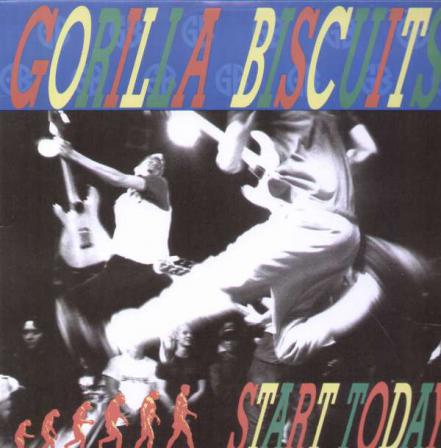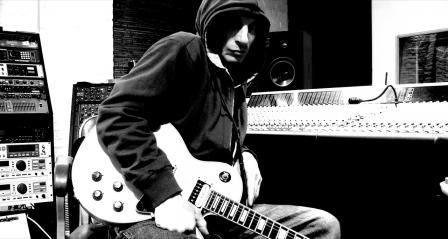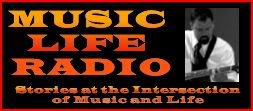Recently, Punk Globe got the chance to chat with Don Fury - the legendary producer, founder of DF Studio. Over the years of his career, Don has worked with artists like Agnostic Front, Youth of Today, Quicksand,Helmet, Gorilla Biscuits, Judge, GG Allin, Sick Of It All, CIV, Side By Side among others.
Don speaks about CBGB's and the hardcore scene, about his musical roots, Agnostic Front and the musical climate in New York. Hope you all enjoy!
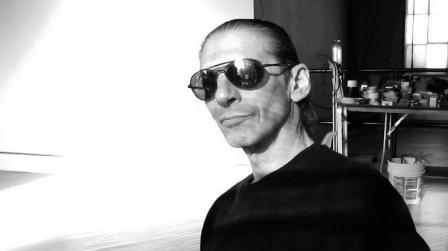
Punk Globe: Your great-grandfather and your family has had a long history ofmanufacturing musical instruments. Can you tell us a little bit about it ?
Fury: My Great Grandfather Angelo Mannello was a world renowned luthier, and two of his prize mandolins are in the collection of the New York Metropolitan Museum of Art. My family were manufacturers of mandolins, mandolas, guitars, and even pianos until about 1930. But I did not know much about Angelo or the family business until later in my life. I became inspired by music and performing arts about the time I was 9 years old. And I was playing guitar by 14 or 15, and starting bands. So bands were my focus until I built my first rehearsal studio at 15 East 17th Street in New York City. And then I dreamed of a recording studio. And that recording studio, at 18 Spring Street in Manhattan, is where the dreams became true.
Punk Globe: During your young years you were a member of several bands including one band you founded with Dee Snider. Was there a moment when you understood that you have more interested in the production side of things ?
Fury: (laughs) Yes, Dee and I were in 3 bands together in high school, and later I even sat in with Twisted Sister on guitar one weekend when Eddie Ojeda was out with a flu. But by the time I was 30 I had been playing New York City in many bands for 8 years. New York City, and especially downtown Manhattan, was just amazing during those years. By that time I had a small recording studio at 18 Spring Street, and the change to recording, and later to producing, was a natural change. More bands wanted me to record their records than clubs wanted to book my bands.
Punk Globe: Tell us a little bit about the music scene in New York City, in the late 70's-early 80's ?
Fury: In the late 70’s and 80’s especially, you could walk into any club and see something different, new, wild, raw and thrilling. So there was an impact every night. So many bands playing live and on the edge, I just felt like this was where I had to be. And I had to be a part. So I carry all of that.
Punk Globe: What memories do you have about CBGB’s and its regulars ? When did you start going there ? And what were the shows that you remember the best ?
Fury: The first show I ever saw in New York City was at CBGB - Johnny Thunders and the Heartbreakers, with Richard Hell, Jerry Nolan, and Walter Lure. That’s the show I remember best, and that’s the show that changed my life. That was the night I decided I had to get to New York City no matter what. And just a few years later I was playing CBGB with all my bands, and my x Carol Costa was a manager there, and our kids were running all over the club! Hilly Kristal was the impresario of CBGB, and the driving force, and Hilly was great with my family. The CBGB hardcore matinee was my suggestion to Hilly, and that was so crucial for all the NYHC bands - awesome shows! CBGB was a school for bands. Back then CBGB would lock the doors at 4AM and anyone still there would stay until dawn! Amazing nights.
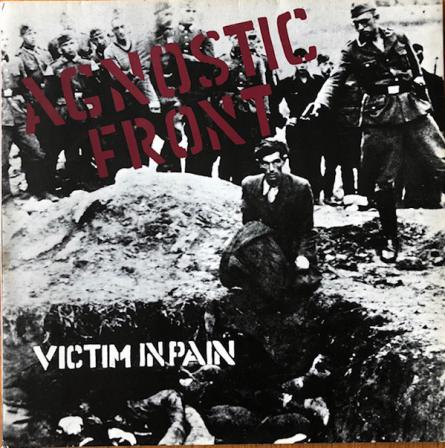
Punk Globe: But if we focus on hardcore at that point, what were the key factors that defined the direction all these bands were moving to and the genre itself ?
Fury: The bands and the scenes were just being born, I don’t think they had any direction. Hardcore is a structure that is easy to use, a little like folk music. If you have something you want to say, with passion and energy, you can say it with hardcore.
Punk Globe: And what was the most attractive about it, for you and from a producers' perspective?
Fury: It’s personal. No one would have called me a producer before hardcore. Hardcore was disrespected or just unknown at that time by the music industry. From the first minute I saw Agnostic Front I knew I should be a part of hardcore. It’s the ferocity, honesty, engagement, uncompromised and raw energy. What else could you ask for.
Punk Globe: Tell us about the hardcore bands,the sound, the esthetics of the record. And your production. While recording it, you worked with a rented 16-track tape deck – why did you step up from 4-track format and what did you learn from working with AF on that particular project ?
Fury: We rented a 16 track recorder so we could make a great quality record for AF and the NYHC scene. I think what we learned, after a little while, was that Victim In Pain and New York Hardcore was going to be massive and accepted around the world.
Punk Globe: There are lots of EP’s and 7-inches you produced at the beginning of hardcore movement. Much more than full-length albums. was it do to the band's budget?.
Fury: What budget?(laughs) It seemed like we were doing a NYHC 7” almost every week back-in-the-day. I think it was easy in all ways - fast in the studio - usually one or two days - and more easy for a band or small label to make a 7” than a 12”. Many of the 7” sessions, almost all of them, were recorded in 8 track format. So the drums only had 2 tracks and a stereo mix. I had to get the drum sound as perfect as possible before we started recording. Later when I went 16 track we had more freedom in tracking and in mixing. So on 16 track LP projects we could go far beyond basics. The Into Another debut LP is the best example of that intensity, but there were many more.
Punk Globe: Gorilla Biscuits’ Start Today', became the highest-selling record of Revelation Records. What was recording that like?
Fury: The first recordings I did for GB were for comps, and were a little rough, but when they came in to record their first 7” the band was totally ready. We recorded in 8 track format and it was one of the most important early EPs from the studio - so amazing for Revelation Records that when it was time for Start Today, Rev gave GB money for a 24 track studio. I got a call from Walter from GB a little after - they hated the 24 track studio and wanted to come back and record Start Today at my studio - in 8 track format! So we did! Walter, Civ and I worked hard on the vocals, since the band had not rehearsed the brand-new songs, and the work shows up. The record is still a favorite, and I can’t believe how much we packed into the 8 track format!
Punk Globe: Even though most of us know you as legendary hardcore-producer – there were lots of other stylistically different artists you’ve worked with, like - The World/Inferno Friendship Society or Black 47. While working with artists like these – was it hard for you to step away from being a hardcore-punk-producer?
Fury: Well, most of the time the bands I work with have some qualities of style that are the same as HC - a good edge, passion, and a real and true sound, maybe a dash of punk ethic. So it is quite fun to get into bigger bands - bands with horns, woodwinds, keyboards, harmonies, accordions, tubas and even strings.. we made fantastic records.. all favorites..
Punk Globe: Do you have any useful tips about recording with guitars\bass\drums\vocals with every artist ?
Fury: Sure. Always mic everything. Don’t let a computer make your sounds or correct the performance - that is happening everywhere, and even in hardcore now, and it really should not. Learn how to tune drums and use Moongels to reduce drum rings during recording. Record lead vocals on a single track as much as possible, so they sound real. 99.9% of all great recordings ever made were recorded on 24 tracks or less. Don’t over-record and under-produce. Produce as-you-record, not after you are finished recording.
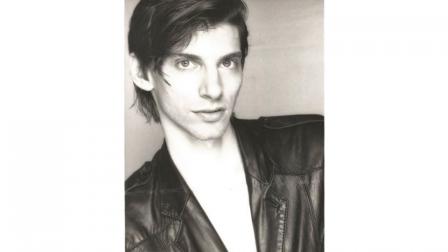
Punk Globe: You don’t polish the sound too much ( like some producers do ) but show the individuality of the players. Is that crucial to your recording style ?
Fury: I don’t think I know how to polish sound. I pay attention to each player and singer. When some reviewers write that a record I produce sounds ‘raw’ I am always surprised. That is exactly what the band sounds like. Why should it sound polished? But that is also a trend, even in ‘hardcore’ now - which is sometimes recorded and mastered like generic rock-metal, so maybe they ought to just call it something else. Shmetl.
Punk Globe: At certain point hardcore changed – with artists like Jawbox, Fugazi, or Quicksand. And speaking about Quicksand – I’d say that the records you did with them are much more dynamic. How much did these changes affect your work as a producer?
Fury: It was a natural progression. I had worked with Walter Shreifels, the guitarist/vocalist/writer of Quicksand, on many projects by that time. Post-hardcore was an emerging style in New York - Quicksand, Burn, Helmet, Shift, Into Another, and later Stillsuit and others were all breaking new ground. The bands were mixing hardcore styles with grooving rock and tribal beats and even jazz guitar inversions, and all had dynamic arrangements. It was a fresh and energetic style, and some of the most sophisticated work of those days. Post-hardcore opened the door for those bands to major labels - Polydor, Island, Interscope, Hollywood, Lava/ Atlantic and others, and to commercial radio, and also opened my studio doors to the major labels and to major management. We were able to greatly expand our time in the studio, and we were able to work with great industry professionals - George Marino, Mike Barbiero, Howie Weinberg, to name only a few.
Punk Globe: Despite being a producer and engineer for many years you are also a single-father of three children. Wasn’t it hard for you to take care of your kids and work in such fast tempo ?
Fury: (Laughs) Well, happily, my studio and home were in the same building at 18 Spring Street in Manhattan - the studio in the basement and our home on the first floor. Most of the studio sessions were on weeknights or on weekends, so I was able to be a father and do all the school and after-school things with the family. That’s how it was possible. And I would say it was almost all fun, almost all the time!
Punk Globe: Over the years, you have worked with bands from all over the world – Europe, South America, Japan, Australia…But at the same time all these records sounded like Don Fury’s work. Some people say that a producer may be regarded as a co-author. In your opinion, did you bring to these artists and their records together? How is mixing and mastering a band recorded somewhere else in the world different than producing in your own studio ?
Fury: Well, I am not a co-author. As a producer, my job is to find out what the band wants and get them to accomplish their goal. I think I do have a sound people recognize - I can capture dynamics of even the fastest performances, present an edge on all the sounds, and create a transparent mix even with dense material. I produce a ‘real’ sound. That sounds like the band at their best performance. Mixing and mastering, without the band present, is much different than producing. The band is expecting a sound like my own, though the material was recorded somewhere else. So there is a lot of work to shape the sounds. But that’s not all - the band wants a unique record - and communications can be limited without the band present. So a record which might take a weekend to produce in my own studio, may take much more time to mix and master as we work on the style - but that’s OK when it comes out sounding awesome!
